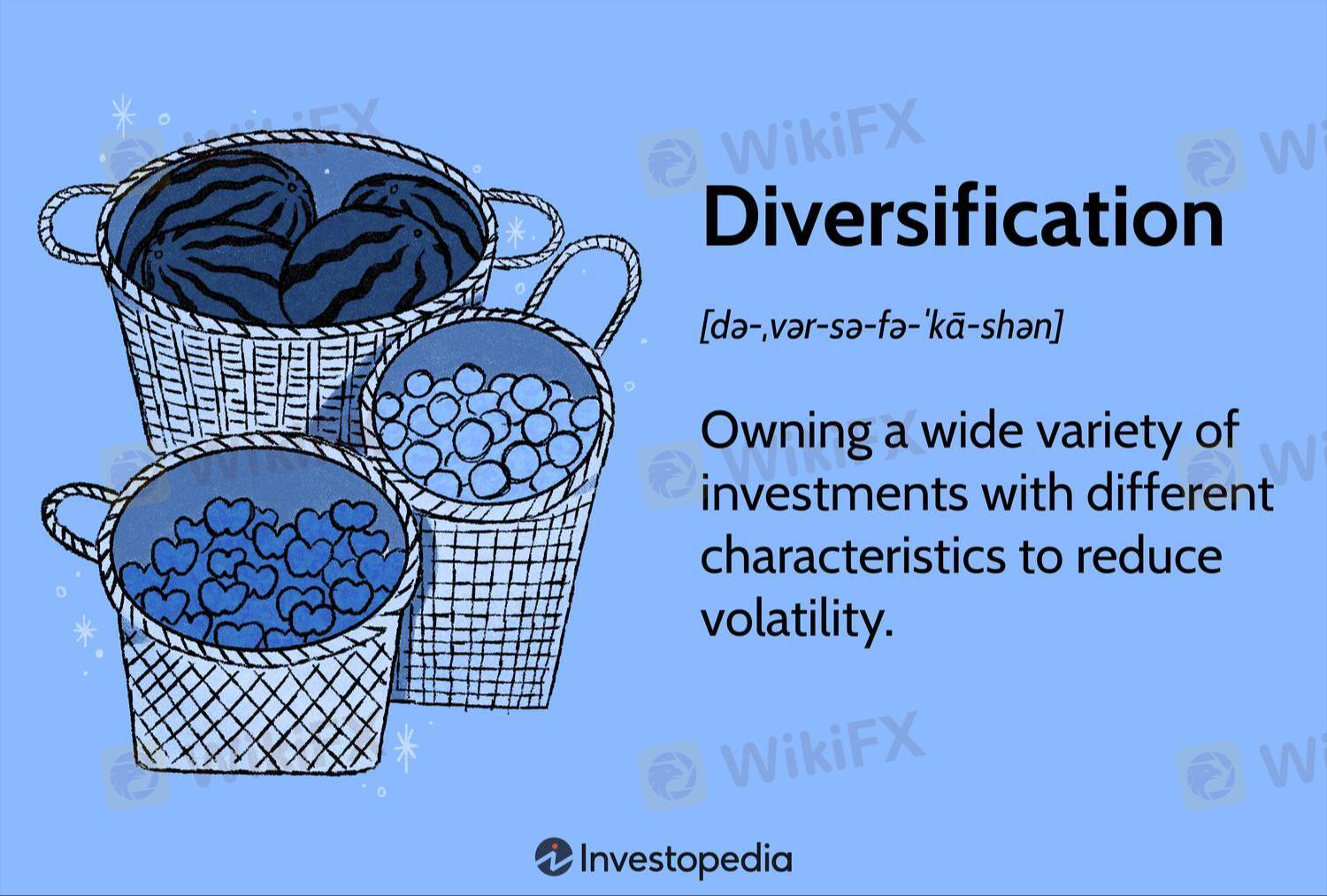
2025-02-18 01:11
업계에서The role of diversification in risk management.
#forexrisktip
Diversification is a risk management strategy that mixes a wide variety of investments within a portfolio. The rationale behind diversification is that a diversified portfolio will yield higher returns and pose a lower risk than individual securities or homogeneous portfolios. A diversified portfolio should include different asset classes, such as stocks, bonds, and real estate, as well as different sectors, such as technology, healthcare, and energy. It should also include investments in different countries and regions.
Diversification is important because it helps to reduce the risk of loss. If one investment performs poorly, the other investments in the portfolio can help to offset the losses. This is because different asset classes, sectors, and countries tend to perform differently over time. For example, stocks may perform well when the economy is strong, while bonds may perform well when the economy is weak.
Diversification can also help to improve returns. By investing in a variety of assets, investors can increase their chances of capturing the gains from different markets. For example, if the stock market is performing well, the portfolio will benefit from the gains in the stock market. If the bond market is performing well, the portfolio will benefit from the gains in the bond market.
However, diversification does not guarantee a profit or eliminate the risk of loss. It is still possible to lose money in a diversified portfolio. However, the risk of loss is lower than it would be if the portfolio was not diversified.
Here are some of the benefits of diversification:
* Reduces the risk of loss
* Improves returns
* Helps to achieve long-term financial goals
* Reduces volatility
* Provides peace of mind
Here are some of the risks of diversification:
* Can be complex and time-consuming
* May not be suitable for all investors
* Does not guarantee a profit or eliminate the risk of loss
Overall, diversification is a valuable risk management strategy that can help investors to achieve their financial goals. However, it is important to understand the risks and benefits of diversification before making any investment decisions.
좋아요 0
Cry63
Nhà đầu tư
인기있는 콘텐츠
시장 분석
투자주체별매매 동향
시장 분석
유로존 경제 쇠퇴 위기 직면
시장 분석
국제 유가는 어디로
시장 분석
미국증시 레버리지(Leverage)·인버스(Inverse)형의 ETF, 최근 사상 최대 신
시장 분석
투기장 된 원유 ETL...첫 투자위험 발령
시장 분석
RBNZ 양적완화 확대
포럼 카테고리

플랫폼

전시회

대리상

신병 모집

EA

업계에서

시장

인덱스
The role of diversification in risk management.
 인도 | 2025-02-18 01:11
인도 | 2025-02-18 01:11#forexrisktip
Diversification is a risk management strategy that mixes a wide variety of investments within a portfolio. The rationale behind diversification is that a diversified portfolio will yield higher returns and pose a lower risk than individual securities or homogeneous portfolios. A diversified portfolio should include different asset classes, such as stocks, bonds, and real estate, as well as different sectors, such as technology, healthcare, and energy. It should also include investments in different countries and regions.
Diversification is important because it helps to reduce the risk of loss. If one investment performs poorly, the other investments in the portfolio can help to offset the losses. This is because different asset classes, sectors, and countries tend to perform differently over time. For example, stocks may perform well when the economy is strong, while bonds may perform well when the economy is weak.
Diversification can also help to improve returns. By investing in a variety of assets, investors can increase their chances of capturing the gains from different markets. For example, if the stock market is performing well, the portfolio will benefit from the gains in the stock market. If the bond market is performing well, the portfolio will benefit from the gains in the bond market.
However, diversification does not guarantee a profit or eliminate the risk of loss. It is still possible to lose money in a diversified portfolio. However, the risk of loss is lower than it would be if the portfolio was not diversified.
Here are some of the benefits of diversification:
* Reduces the risk of loss
* Improves returns
* Helps to achieve long-term financial goals
* Reduces volatility
* Provides peace of mind
Here are some of the risks of diversification:
* Can be complex and time-consuming
* May not be suitable for all investors
* Does not guarantee a profit or eliminate the risk of loss
Overall, diversification is a valuable risk management strategy that can help investors to achieve their financial goals. However, it is important to understand the risks and benefits of diversification before making any investment decisions.
좋아요 0
나 도 댓 글 달 래.
제출
0코멘트

댓글이 아직 없습니다. 첫 번째를 만드십시오.

제출
댓글이 아직 없습니다. 첫 번째를 만드십시오.